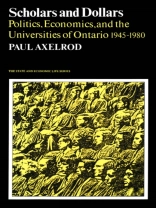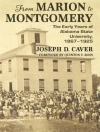Propelled by buoyant economic conditions, favoured by free-spending politicians, and buttressed by widespread public support, higher education during the 1960s became one of Onatrio»s major growth industries. But less than a decade later, in a dramatic reversal of spending priorities, funing policies threatened to squeeze the very life out of the provincial university system.
In this wide-ranging study, Axelrod explores the impact of economic changes on Ontario universities since World War Two. He addresses the questions of how universities were percieved by the public, why they were supported during the period of expansion, how they set out to fulfil their prescribed functions, and how they were affected by the diminshed opportunities and cooler economic climate of the 1970s.
This volume touches on such diverse issues as business-university relations, student financial assistance, manpower planning, and faculty unionization. It examines the internal dynamics of university life against the background of the social and economic conditions which directly affected Ontario universities but over which they had virtually no control. How could they plan for an economy that valued having no plan?
The author concludes that not only did the universities prove to be imperfect instruments of economic development, but the efforts expended in the task compromised their vital role as islands of culture and critical thought in a materialistic society.












